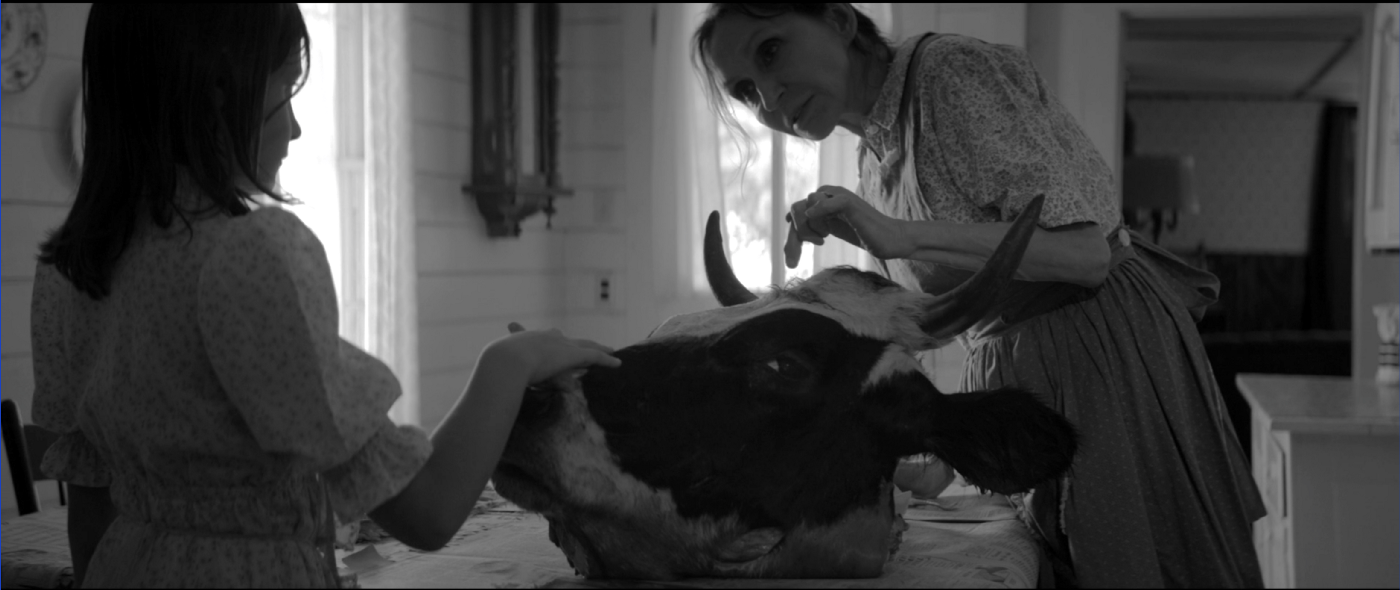
We all know how to kill a zombie. We may not remember any of the real biology we learned in high school, but in case of a zombie apocalypse, we have all the pertinent facts at the ready.
Zombies have been shambling across the movie screen ever since movies began. They first appeared as undead slaves from Haiti. Over time, they evolved into the flesh-eating hordes we know and love today. Along the way, the causes for their existence changed and the speed of their movements varied, but the popularity of the zombie has remained steady.
Several different factors keep zombies “alive” in the public zeitgeist. Their blank minds are an open invitation to overlay a variety of motivations and ideas. Their contradictory existence as “undead” is a perfect entry into questions about our existence. Their destruction of humanity is an opportunity for criticism and reflection on our own behavior as a society. They are a parody of us, an apocalyptic retribution for our sins, a contagion, and a test of our mettle.
Zombies As A Force of Alienation.
Alienation has been the flip side of modernism’s coin since modernism began. Dostoyevsky and Marx saw it as the central theme of the New Age. Between industrialization, capitalism, and mass media, the ties that bind a community together are continually being weakened. The world becomes a cityscape of strangers and competitors, each primarily concerned with their own well being.
This sense of alienation is brought front and center in zombie movies. People have literally lost their humanity. They have lost their minds, their sense of purpose, and the protagonist finds themselves in a desperate search for someone who is still conscious, someone they can make a human connection with.
Alienation differs from isolation in that proximity is irrelevant for the alienated. They are no longer able to find common ground with society. In trying to escape the zombies, we are running to find a safe haven from the mindless rabble that grows in number every day and slowly closes in around us. We are alienated as well as surrounded.

Imagine the sense of alienation and fear you would feel standing deep inside a Trump rally. The hypnotized chants that they pump their fists to might as well be a collective zombie howl. As a group, they are a slow, lumbering mass, but if they see an outsider, they become vicious.

In Zack Snyder's 2004 remake of Dawn Of The Dead, there is a small band of survivors on the roof of a mall who communicate with a lone survivor on a rooftop across the street. They communicate by writing on whiteboards that they hold over their heads. It works well for a while, they are even able to play chess, but when the lone survivor is overrun by the zombies, we see his white board smeared with blood instead of a message. It is a gruesome way to depict the loss of human connection. There is no longer someone you can engage with.
Zombies As Consumers
The zombie is literally a consumer, but it is also a satire of consumer culture. The crushing crowds of chaotic bodies are reminiscent of the Black Friday sales seen every year during the holidays. The crowd, and the desperation to consume, severs all human ties, setting everyone against each other in a free-for-all.

By its nature, consumerism furthers our alienation. Consumerism trains us to see ourselves as incomplete. We need products and services to become whole. Even more intense, the zombie consumer illustrates how we consume each other. The first world devours the third world, both the people and resources.

Zombies And The Loss Of Self
Part of the horror of zombies is the loss of self they represent. We already fear the loss of self that is death, but it is a horrific image to see ourselves still “alive” and “functioning” without our consciousness. The dead stare of a zombie, often highlighted by a lack of irises, is the ultimate example of the lights being on but nobody being home.
In a choice between “having” a body and “being” a body, most people choose the former. We instinctively think of ourselves as more than flesh and blood. The zombie is a vision of us as purely corporal, a fact that many wish to deny.
The original voodoo zombie was a slave to the priest or priestess who made them. The zombie’s body was no longer their own. This again recapitulates alienation. In a Marxist sense, the worker is alienated from their own body. Their labor is not their own. Their actions are not their own. Their bodies are not their own. They are a drone.

Zombies As Colonizers Or The Colonized
The dynamic of voodoo priest as colonizer can also be reversed. The zombie can be seen as the colonizer, in that it conquers from within and enslaves the population. The subsuming of the will and the lifeless conformity of the horde have been used in zombie films to stoke Cold War anxiety over the perceived conformity of Communism. The famous line from Romero’s Night Of The Living Dead is an all-purpose incitement to fear, “They’re coming to get you, Barbara!” The audience can fill in the “they” with whoever comes to mind. The fear of the mindless mass expands far outside the zombie genre. Invasion of the Body Snatchers gets remade every few years, and the Borg keep coming back to Star Trek.

The Zombie In Consciousness Studies
In Shaun of the Dead, people fail to recognize that the zombie invasion has begun. It’s a clever satire of our mindless trudge through our work week. We drag ourselves, half-asleep, through our daily routine like a bunch of mindless zombies. Before the zombies have a chance to crawl out of their graves, society has already alienated us all.

In consciousness studies, the concept of a zombie is used in an effort to understand a cluster of problems concerning awareness, the nature of consciousness, and the relationship between the material world and the mental world. One thought experiment invites you to consider the possibility that you are the only “conscious” person on Earth, and that everyone else is a zombie without self-awareness. The argument branches off into several possibilities and quickly gets too involved and complex to address here, but one aspect of the argument concerns our inability to know, or prove, that other people have minds, or have minds that function the way ours do.
In practical terms, it means that our understanding of each other is limited. We cannot know the true nature of another person’s experience and, without a quantifiable comparison, we can’t truly know our own. The zombie is an extreme example of this. The ultimate stranger. Someone that looks like one of us, but is unknowable and therefore frightening.
Zombies provide a fulcrum on which to balance the body and mind. Zombies are a terrifying paradox that defies a foundational aspect of our existence. The dead must remain dead. If the body persists after death, it calls everything into question. What are we? Are we temporary occupants of a flesh-and-blood machine, or are we a machine that has fooled itself into thinking it is something more? Zombies are a blank space, a placeholder where what we are can be questioned. The fear they invoke stems from our inability to answer.

If you enjoyed this article click here for more
www.filmofileshideout.com/archives/wild-zero-a-cross-cultural-meat-grinder




I have to say - I've been reading your articles for a few months now and they have become one of my favorite things to read about film. They are light, flow really well, and always bring something new to the table.
I found it funny that you mentioned Dawn of the Dead when talking about alienation. My mind immediately went to the original 1978 movie when I read the Zombies as Consumers subtitle.
Great text as always, keep it up!
[…] but I don’t think sensibility is the goal. Then suddenly the whole thing turns into a heavy metal zombie movie, which was fine with me. The guitar screams out and the cannibalism commences. All the bone […]